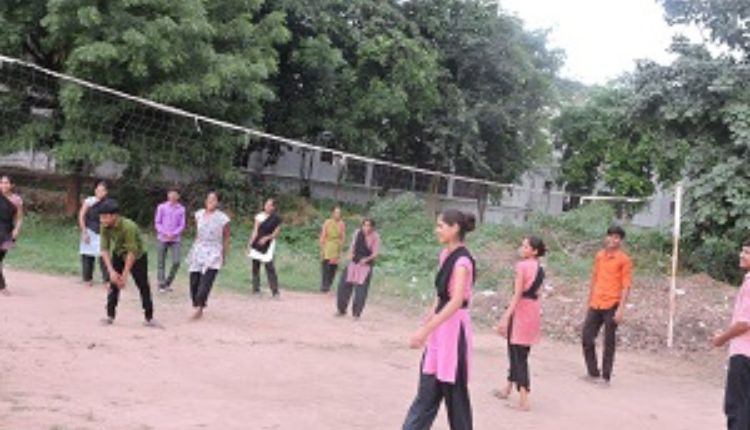Gujarat Vidyapeeth, founded by Mahatma Gandhi in 1920, is an institution of great significance and a hallmark of India’s struggle for freedom. It was established as a part of the Non-cooperation Movement, which was launched by Mahatma Gandhi as a peaceful protest against British rule in India.
The primary aim of Gujarat Vidyapeeth was to promote Indian education and culture and to create a sense of nationalism among the people of India. It was also envisioned as an alternative to British educational institutions, which were primarily focused on producing clerks and bureaucrats to serve the colonial government.
Mahatma Gandhi believed that education was the key to India’s progress, and he envisioned Gujarat Vidyapeeth as a place where students could receive a holistic education that combined academic learning with practical training in various fields. The institution was also meant to promote Indian languages, art, and culture, which were being marginalized by the British.
Gujarat Vidyapeeth started with just a handful of students and a few teachers, but it soon grew into a major educational institution that had a significant impact on the Indian freedom struggle. Many prominent leaders of the independence movement, including Sardar Vallabhbhai Patel, Vinoba Bhave, and Kasturba Gandhi, were associated with Gujarat Vidyapeeth.
The institution played a crucial role in promoting Indian culture and traditions, and it was instrumental in the revival of many ancient Indian art forms. It also played a significant role in promoting the use of Indian languages in education, which was essential for the preservation of India’s linguistic diversity.
Apart from its role in the Indian freedom struggle, Gujarat Vidyapeeth has also made significant contributions to the field of education in India. It has been at the forefront of promoting rural education and has played a significant role in the development of education in the state of Gujarat.
Today, Gujarat Vidyapeeth offers a wide range of undergraduate and postgraduate courses in various fields, including Sanskrit, Hindi, Gujarati, and English. It has a sprawling campus that houses modern classrooms, laboratories, and libraries, and it continues to attract students from all over India and the world.
In recent times, Gujarat Vidyapeeth has been focusing on promoting the use of technology in education, and it has been at the forefront of several initiatives to digitize education in the state. It has also been promoting research in various fields and has been collaborating with several universities and research institutions in India and abroad.
In recognition of its contributions to the field of education and its role in India’s freedom struggle, Gujarat Vidyapeeth has received several awards and accolades. The institution has also been declared a deemed university by the University Grants Commission (UGC), which is a testament to its academic excellence and its continued relevance in the present day.
In an effort to further promote the institution’s legacy, Gujarat Vidyapeeth will soon be inviting Governor Acharya Devvrat to visit its campus. Governor Devvrat is a renowned educationist and has been actively involved in promoting education and culture in various parts of India. His visit to Gujarat Vidyapeeth is expected to further strengthen the institution’s ties with the government and to promote its contributions to the field of education in the state and the country.
In conclusion, Gujarat Vidyapeeth is an institution of great significance and has played a pivotal role in India’s freedom struggle and the development of education in India. Its contributions to the field of education and the promotion of Indian culture and traditions are unparalleled, and its continued relevance in the present day is a testament to its enduring legacy. The upcoming visit of Governor Acharya Devvrat is a recognition of the institution’s importance and its continued relevance in promoting education and culture in India.
Conclusion: In summary, Gujarat Vidyapeeth founded by Mahatma Gandhi in 1920 is a landmark institution that has made significant contributions to the field of education in India. Its legacy continues to inspire generations of students and educators, and its relevance in the present day is a testament to its enduring impact. The upcoming visit of Governor Acharya Devvrat is a recognition of the institution’s importance and its continued commitment to promoting education and culture in India.
FAQs:
1. What was the main aim of Gujarat Vidyapeeth? The primary aim of Gujarat Vidyapeeth was to promote Indian education and culture and to create a sense of nationalism among the people of India. It was also envisioned as an alternative to British educational institutions, which were primarily focused on producing clerks and bureaucrats to serve the colonial government.
2. Who were some of the prominent leaders associated with Gujarat Vidyapeeth? Many prominent leaders of the independence movement, including Sardar Vallabhbhai Patel, Vinoba Bhave, and Kasturba Gandhi, were associated with Gujarat Vidyapeeth.
3. What is the current status of Gujarat Vidyapeeth? Today, Gujarat Vidyapeeth offers a wide range of undergraduate and postgraduate courses in various fields and has been declared a deemed university by the University Grants Commission (UGC). It continues to attract students from all over India and the world and has been at the forefront of promoting the use of technology in education and research.
